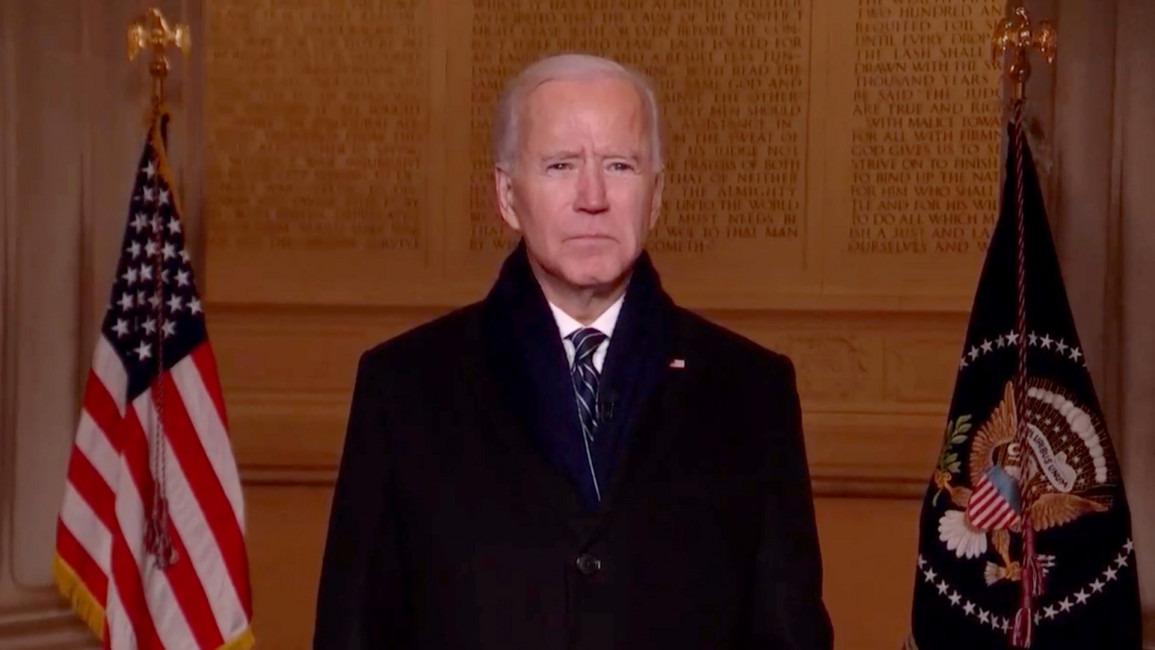Biden undoes Trump migration orders, pushes for major reform
Within hours of taking office, President Joe Biden undid some of Donald Trump's most controversial immigration policies and sparked cautious hope that millions living in the shadows could one day get legal status in the US.
Scribbled signatures from his pen on Wednesday lifted an entry ban for people from many majority Muslim nations and halted construction of Trump's border wall with Mexico, heartening immigration defenders left reeling by four years of "America First" nationalism.
Yet advocates see new battles ahead, including whether lawmakers can finally overhaul the nation's immigration system which has been branded as "broken" with some 11 million undocumented people living in limbo.
These discussions, however, have only begun as the Trump administration has just left the White House.
His so-called "Muslim ban," which in 2017 targeted citizens of Iran, Iraq, Libya, Somalia, Sudan, Syria and Yemen, ignited international outrage and lead to domestic court rulings against it.
Iraq and Sudan were dropped from the list, but in 2018 the Supreme Court upheld a later version of the ban for the other nations - as well as North Korea and Venezuela.
As part of his first acts, Biden signed new protections for so-called "Dreamers" - immigrants who arrived illegally as children and had been temporarily shielded from deportation by a program Trump tried to dismantle.
Read more: Our Arab American forefathers left us a legacy we can't afford to ignore
In addition, the new president overturned one of his predecessor's orders pushing aggressive efforts to find and deport unauthorized immigrants, and imposed a 100-day suspension on most deportations.
Immigration advocates erupted in support for Biden's first orders.
"There is that dark cloud that used to hang over our heads, which is gone," said Camille Mackler, the executive director of a pro-migrant lawyers group founded against the ban targeting Muslim nations.
Republican pushback
"After four years of what was a war on immigration and immigrants, this feels like the dawn of a new day," said Krish O'Mara Vignarajah, president of Lutheran Immigration and Refugee Service.
"I think (this) is pretty significant action for, you know, a president unilaterally on day one," she added.
Twitter Post
|
Aura Hernandez, a 39-year-old immigrant from Guatemala who doesn't have papers, heaved a sigh of relief.
"These past four years have been the worst of my life," said the mother of five, who took refuge for several months in a Manhattan church in 2018 to avoid deportation.
But like millions of others in her position, Hernandez has to keep her hope in check because Biden's executive orders do not change the fundamentals of the nation's immigration system.
The president's nominee to lead the nation's Homeland Security department, Alejandro Mayorkas, said this week that Biden has "committed to presenting Congress, on day one, with an immigration reform bill that, once and for all, fixes I think what we all can agree is a broken immigration system."
Previous efforts to pass a major reform of the system have come tantalizingly close but failed in the end, leaving powerful Democratic Senator Bob Menendez to describe what he expects will be a "Herculean" effort in Congress this time around.
A proposed bill would allow immigrants without documents, but who pay taxes and have no criminal record or national security issues, to work legally for six years and then get on a possible track to permanent legal status.
Menendez noted that 60 of 100 votes would be needed for passage in the Senate, which means Democrats would have to have bipartisan support.
Immigration reform is a particularly delicate issue for Republicans, who have been skeptical of regularization measures and some of whom will be up for re-election in 2022.
Menendez called on the business community, especially in the migrant-heavy agricultural and tech sectors, to push Republicans for action.
Apple boss Tim Cook said on Wednesday he was ready to work with the Biden administration and Congress for "comprehensive solutions to fix our broken immigration system."
Yet any reform proposal will likely require negotiation and thus compromise, Menendez noted.
The legal status of millions of undocumented people "is a major immigration issue that hasn't been resolved for decades," said Sahar Aziz, a law professor at Rutgers University.
"Each time a Democratic president tries to find a path to citizenship, Republicans push back."


![President Pezeshkian has denounced Israel's attacks on Lebanon [Getty]](/sites/default/files/styles/image_684x385/public/2173482924.jpeg?h=a5f2f23a&itok=q3evVtko)



 Follow the Middle East's top stories in English at The New Arab on Google News
Follow the Middle East's top stories in English at The New Arab on Google News


